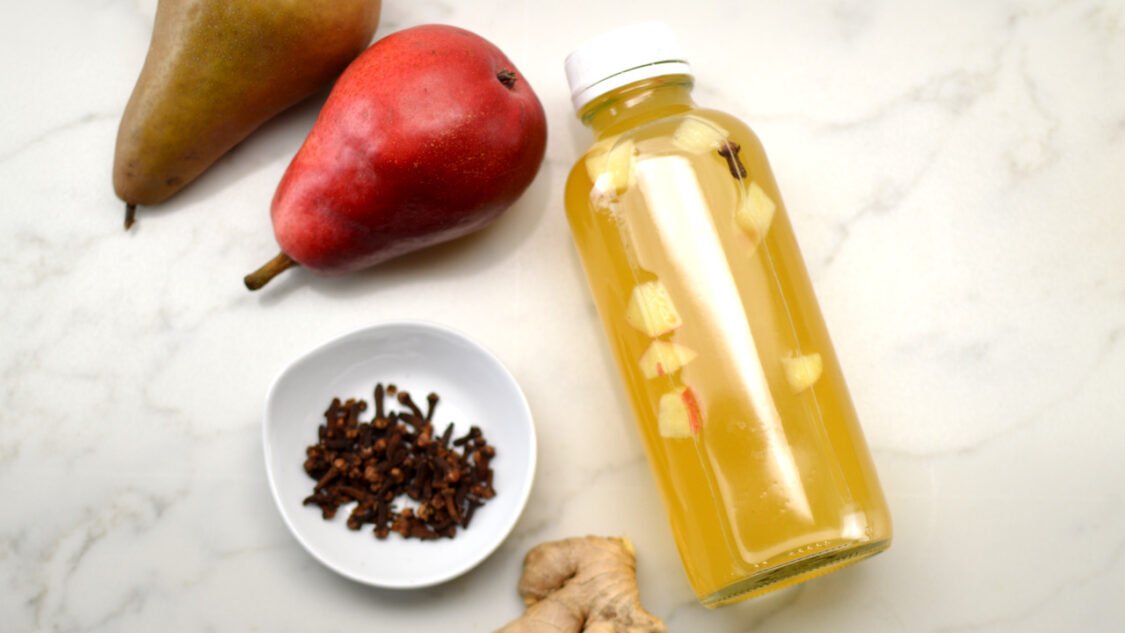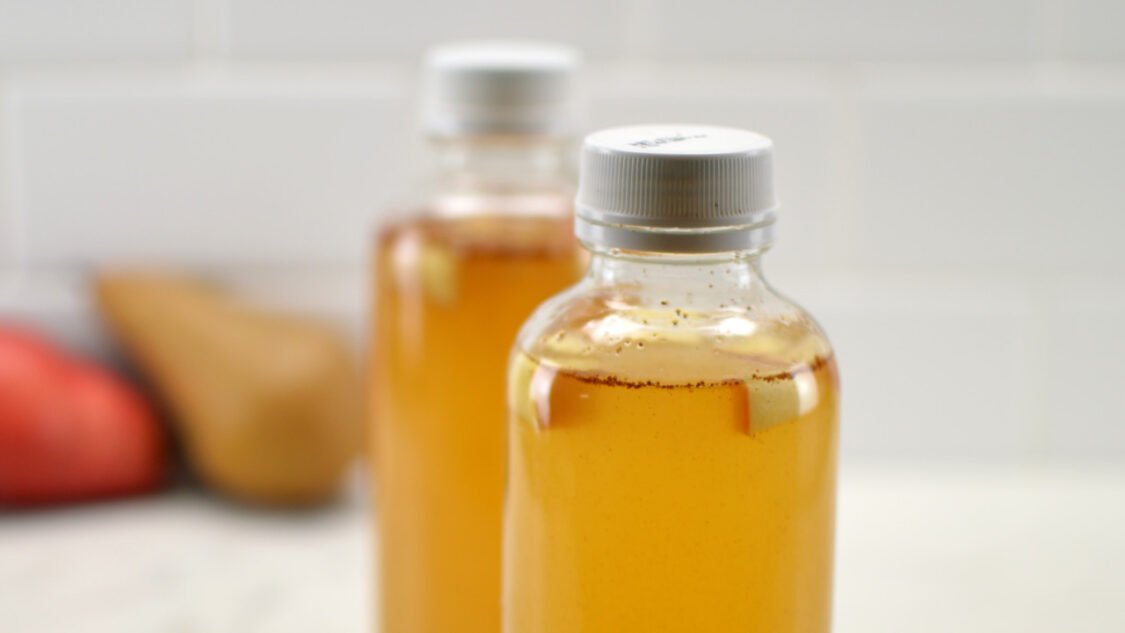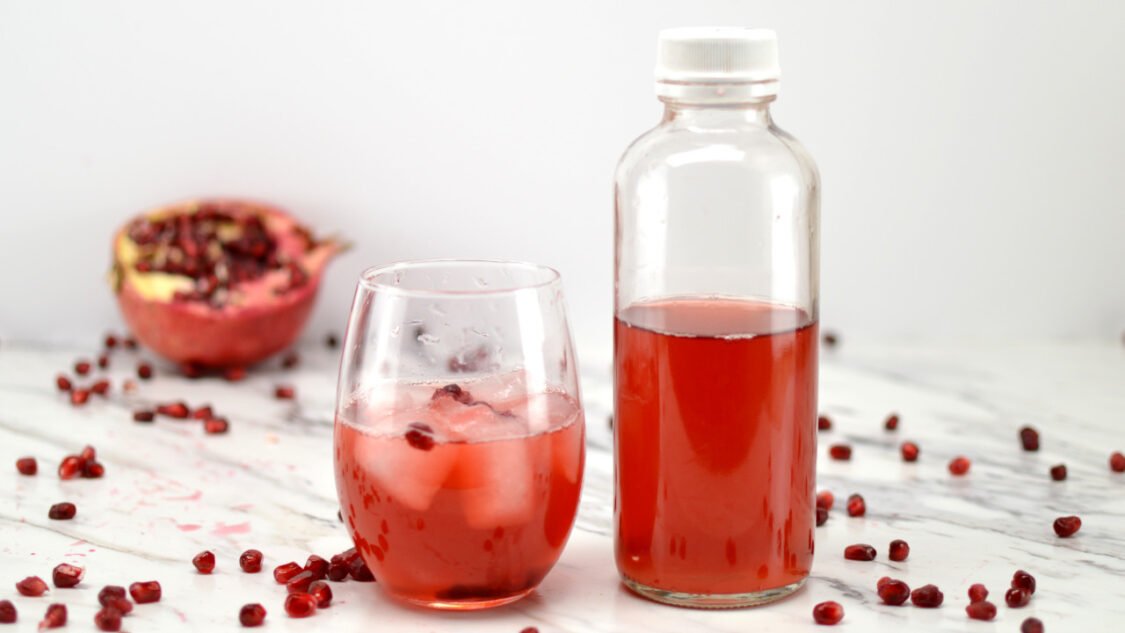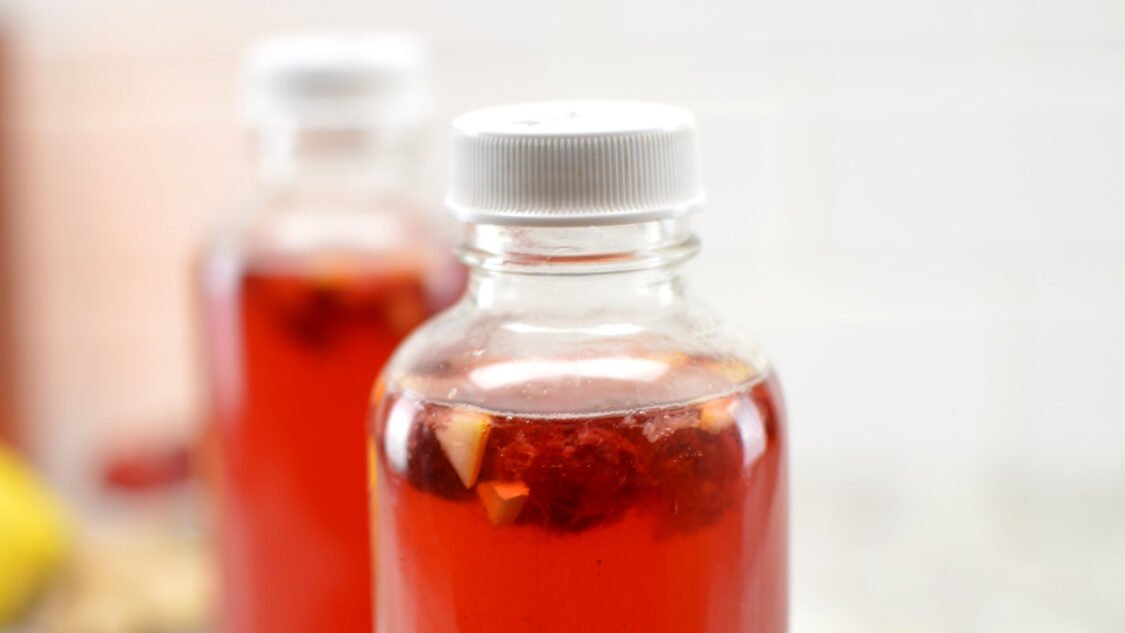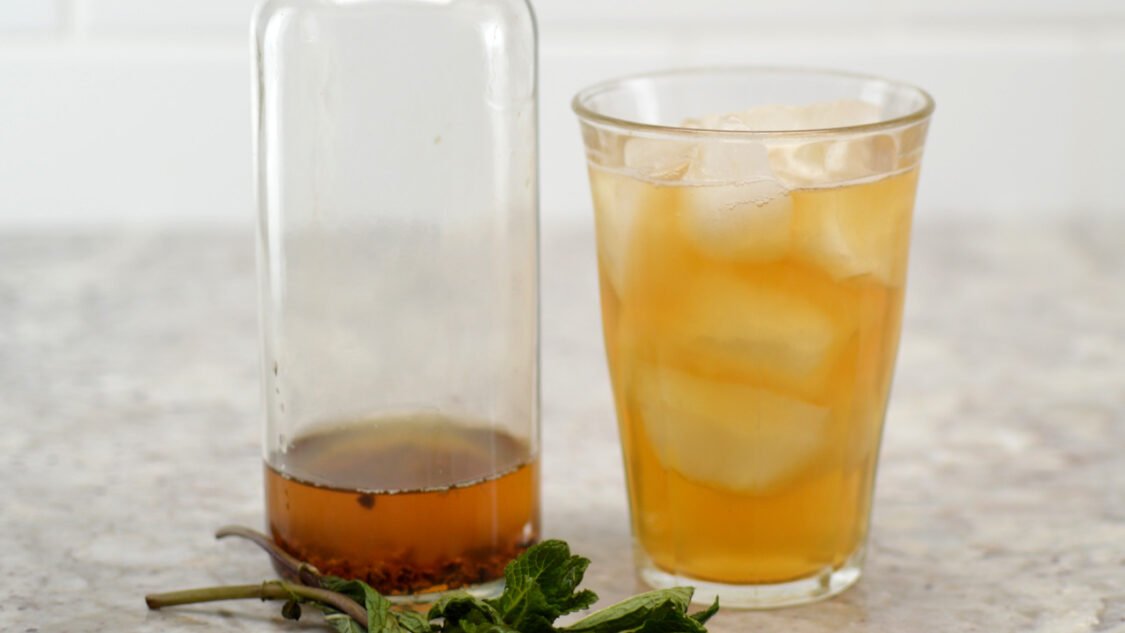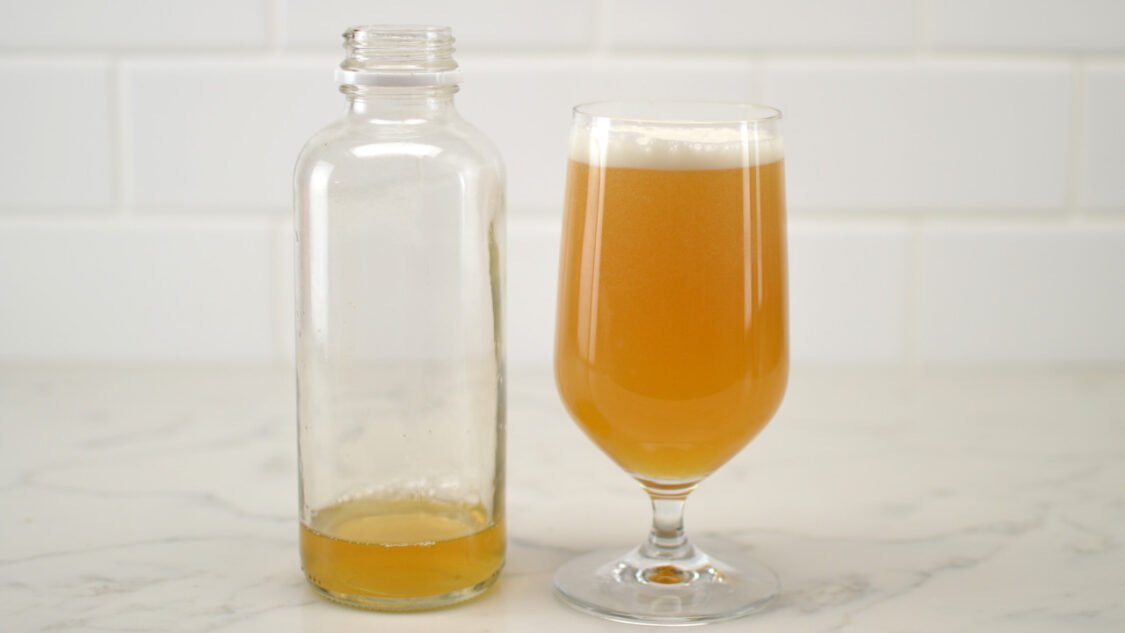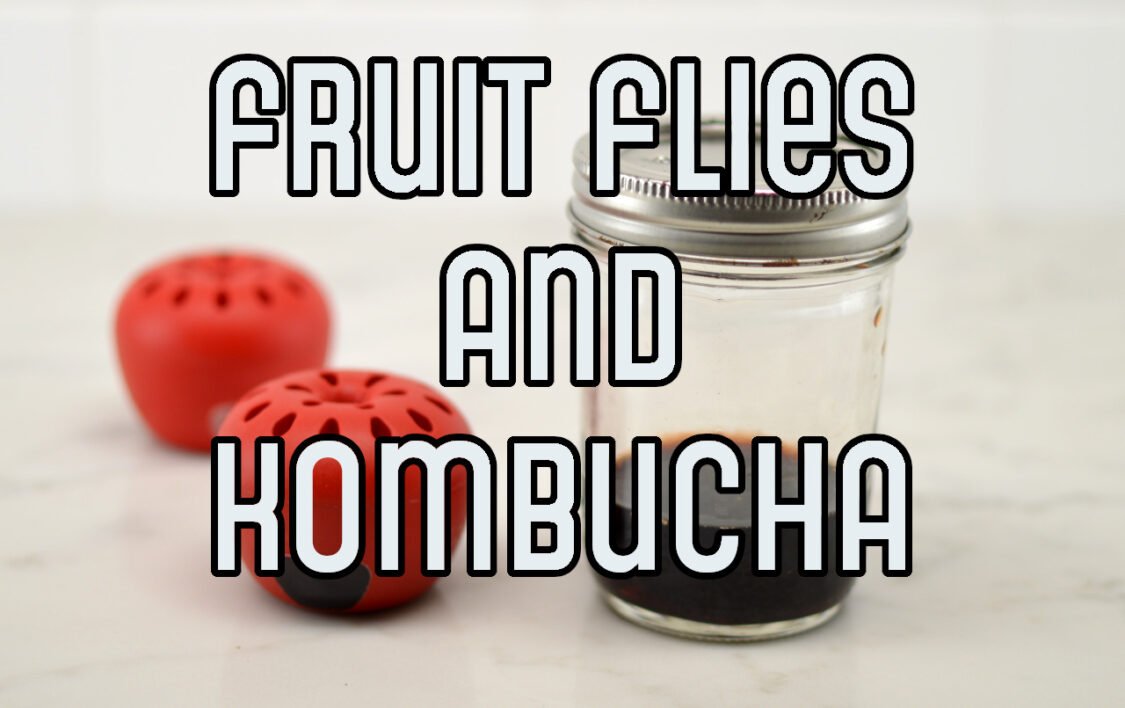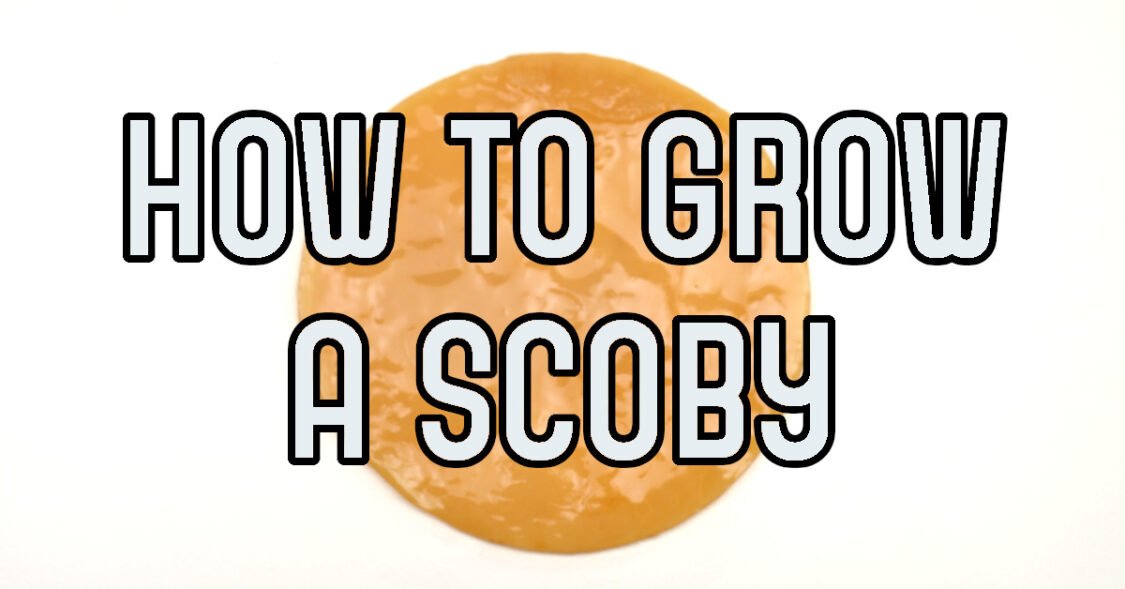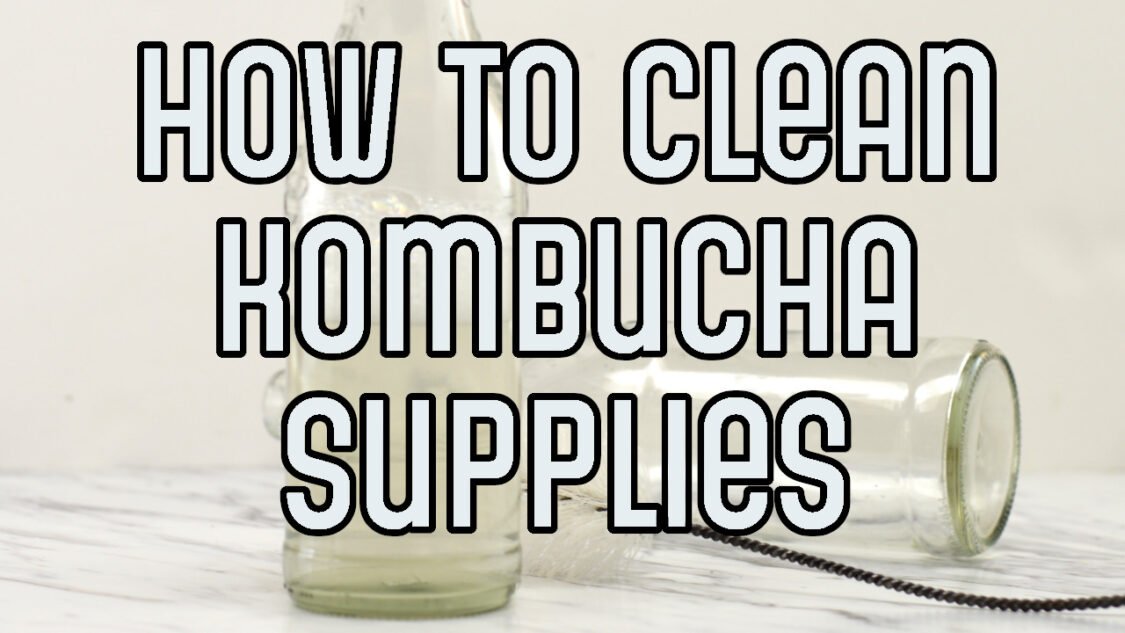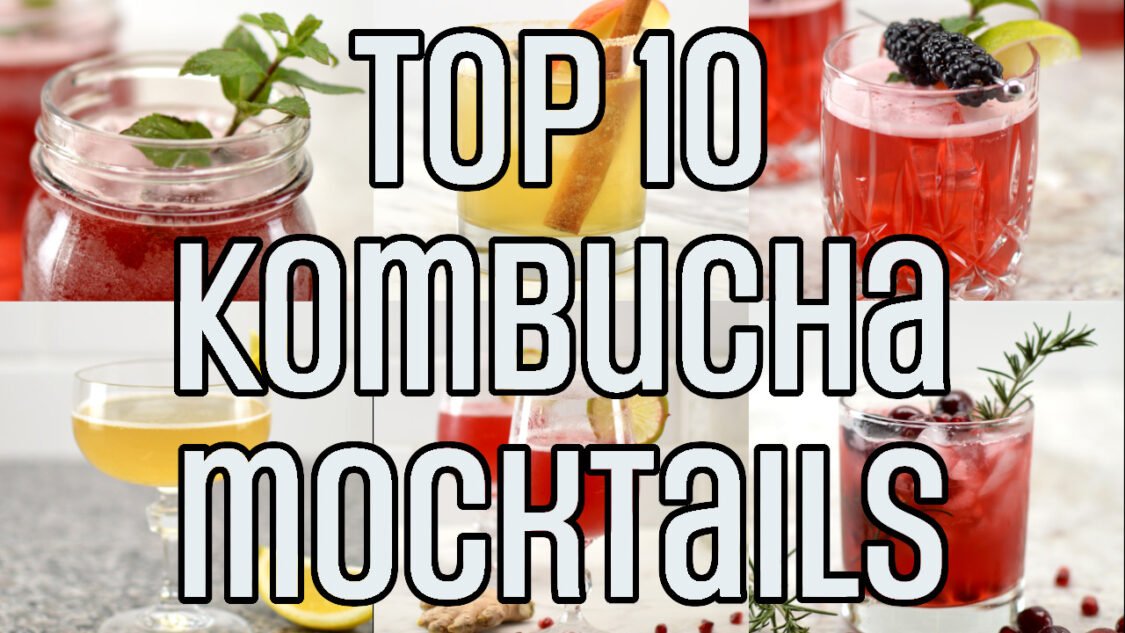Butterfly Pea Lavender Lemon Kombucha
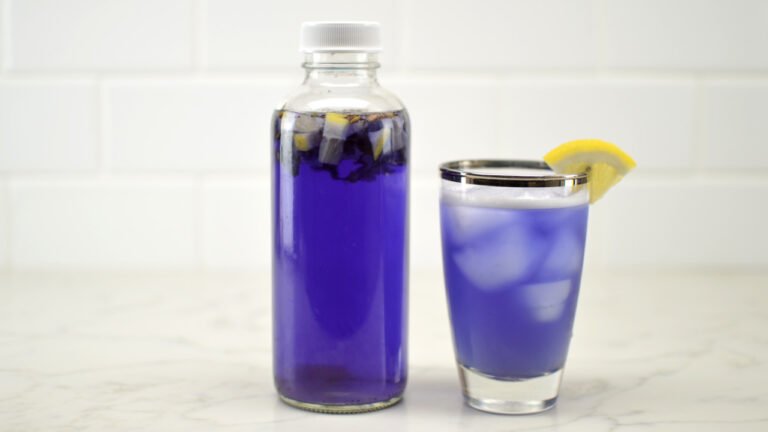
Butterfly pea lavender lemon kombucha is made with a blend of butterfly pea flower tea, lavender, and fresh lemon. The result is a deliciously refreshing kombucha with bold citrus and subtle floral undertones that make it simply irresistible. The purple color from the butterfly pea flower is unlike any other kombucha (or beverage in general.)
There are two ways to incorporate butterfly pea flower tea into your kombucha, either during primary fermentation where you would steep it instead of green tea and add sugar then ferment or in secondary where you simply add the butterfly pea flower tea to the finished kombucha and allow it to infuse the kombucha with it’s sublime color and subtle flavor.
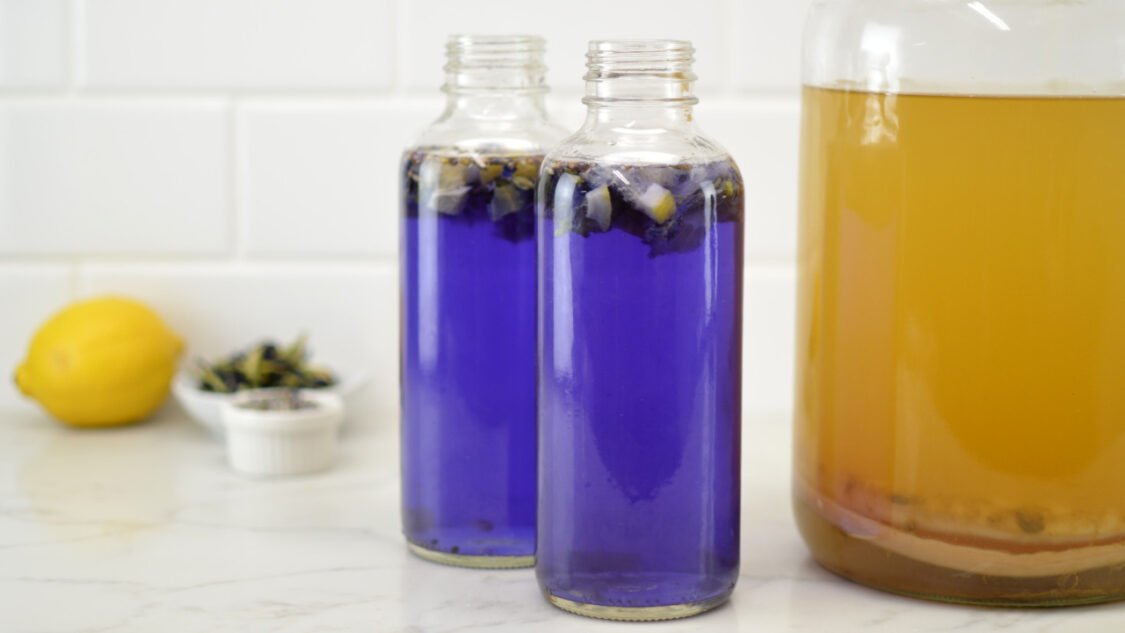
Kombucha Fermentation Overview
There are two fermentation phases when making kombucha:
Primary Fermentation: This is when you transform sweet tea into tart and tasty kombucha. Get all the details at my article on how to make kombucha.
Secondary Fermentation: This is when you carbonate your homemade kombucha by adding flavors (like lemon and lavender) and sugar and bottling it.
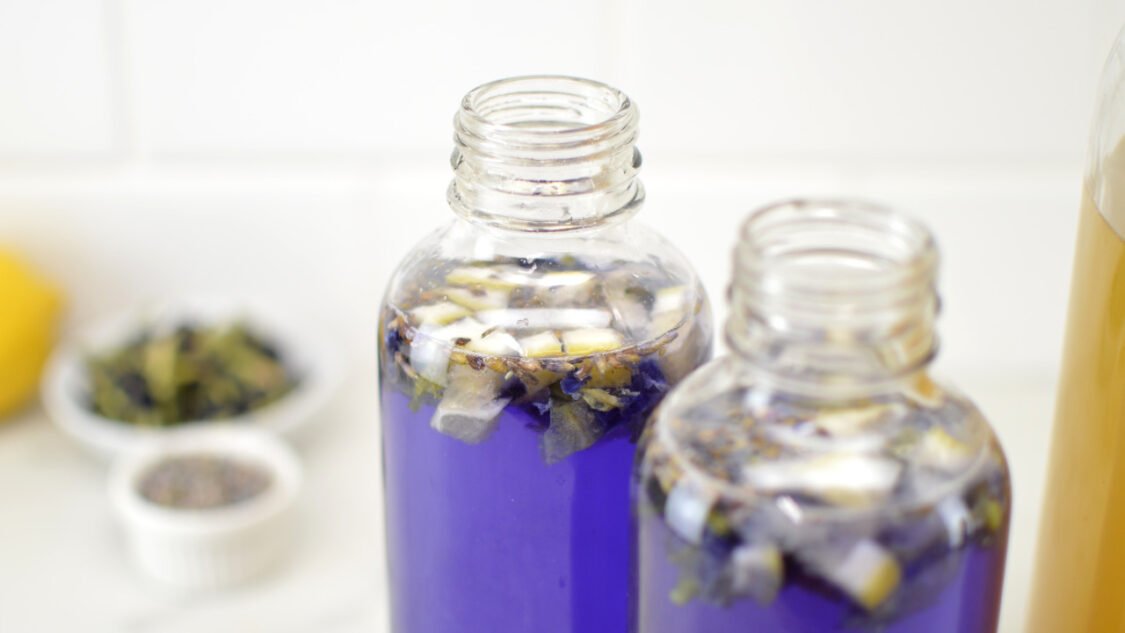
Preparing for Secondary Fermentation
This recipe makes about 7 x 16 fluid ounce bottles of finished kombucha (from a 1-gallon batch of unflavored homemade kombucha aka from your primary fermentation).
Reserve 2 cups (about 16 oz / 0.47L) kombucha and your SCOBY from your completed primary fermentation and set aside – you will use this as your starter for your next gallon batch of kombucha.
With your kombucha starter tea and SCOBY placed aside, you now have enough kombucha left to flavor and fill your bottles. This guide assumes are using 16 oz. glass bottles which are a popular choice for kombucha; however, there are many options for bottling kombucha.
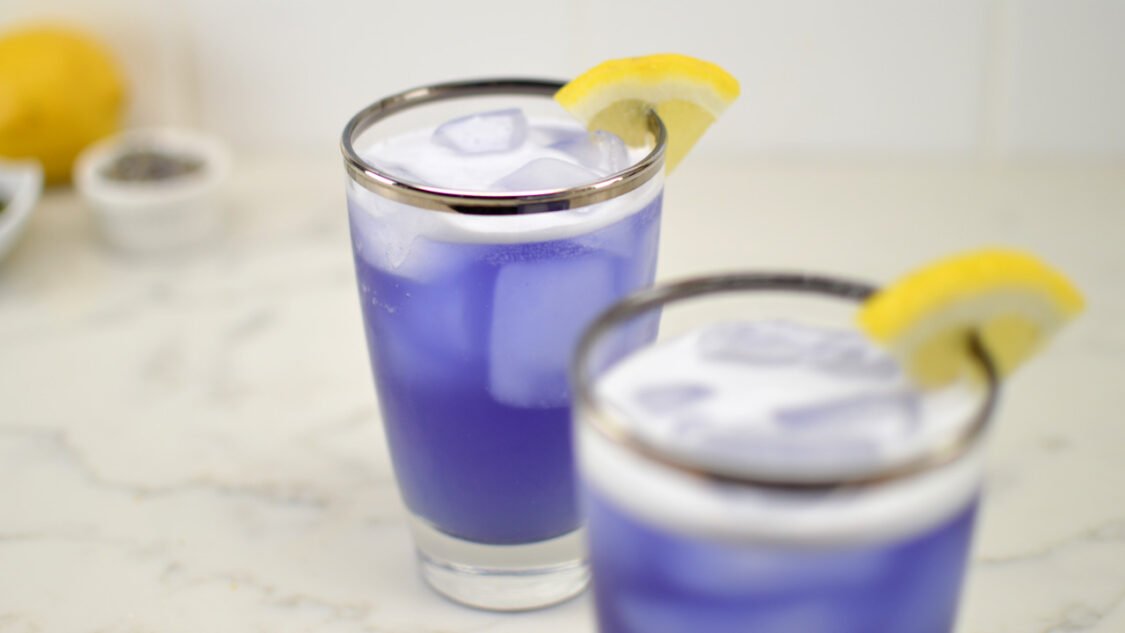
Ingredients to make Butterfly Pea Lavender Lemon Kombucha
Kombucha For this recipe I used green tea kombucha from a first fermentation and added butterfly pea flower to it. You may also make butterfly pea flower kombucha in the primary fermentation or a mix of green and butterfly pea flower teas.
Butterfly Pea Flower: This perennial vine, native to Indonesia, has vivid blue flowers that change color depending what is added to it; Using acidic ingredients like lemon or to ther citrus turns it purple while adding less acidic ingredients, like honey, will turn it a pink-purple color.
Lemons: I like to use all of the lemon: zest, rind and fresh for layers of lemon flavor. Lemon is often described as having the aromas of rose, lavender and pine with a slight herbaceous note. Citral is the compound which contributes to most to the characteristic “citrus” flavor. Citral in lemons can be found in the form of two isomers, neral and geranial (same compound with a different arrangement of atoms in the molecule and therefore different characteristics.)
Dried Lavender Flowers: (Lavender Tea) Lavender has a delightful and distinct floral fragrance that is often described as floral, herbal, and slightly woody. The aroma of the tea is derived from the natural essential oils found in lavender flowers, which are released when the tea is brewed. Some people also detect a hint of citrus or mint in the aroma, depending on the type of lavender used.
Sugar: A touch of additional sugar for bacteria and yeast to feed on which creates carbonation–extra fizzy goodness. When filling 16 ounce bottles I’ve found a sugar cube has the right amount of sugar (1 tsp) for carbonation and is a convenient way to add the right amount without the mess.
How to make Butterfly Pea Lavender Lemon Kombucha
Add Flavors: Divide butterfly pea flower, lemon, lavender and sugar between the bottles.
Bottle: Transfer kombucha to fermentation bottles.
Condition: For 3 to 10 days, until it reaches the carbonation level you like.
Enjoy: Chill in the fridge before serving and strain out fruit pieces when pouring (optional)
Butterfly Pea Lavender Lemon Kombucha Recipe
Yield: 7 bottles • Active time: 20 minutes • Total time: 3 -10 days
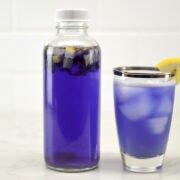
This recipe assumes you are doing a secondary fermentation (flavoring and carbonation) in the bottle. You may also incorporate a third fermentation using the same proportions but following the third fermentation steps.
Ingredients:
1 gallon homemade kombucha from a first fermentation, 3.7 L. You may use green tea kombucha and add the butterfly pea flower or make the batch with butterfly pea flower instead of black tea. If you go this route, there is no need for additional butterfly pea flower in secondary.
3 Tbsp dried butterfly pea flower
3 Tbsp lavender flower. About 3 tea bags, or 9 g dried lavender flowers
1 fresh lemon
7 sugar cubes or 2 Tbs white sugar 12 g
Instructions:
Prepare fruit: Cut lemon into quarters and remove seeds. Coarsely chop.
Flavor: Evenly divide lemon, butterfly pea flower and lavender between the bottles
Sweeten: Add one sugar cube per 16 bottle or evenly divide sugar between bottles (about 2 tsp per 16 0z bottle)
Bottle: Transfer kombucha into fermentation bottles, leaving about 1 inch empty at the top. Seal tightly.
Ferment: Place in a dark, room temperature area for 3 to 10 days, until it reaches the carbonation level you like. This process will go faster in warmer climates, and slower in cooler climates.
Enjoy: Chill your butterfly pea lavender lemon kombucha bottles in the fridge before serving and strain the kombucha to remove fruit pieces when serving (optional).
Homemade kombucha can be stored in the fridge, tightly sealed, for several weeks.
Tips & Tricks:
Make sweet tea for your next batch the night before you flavor and bottling and let it cool on the stove overnight so that you can flavor your kombucha and get your next batch started at the same time.
If this is your first time brewing, it may be helpful to use a plastic water bottle as a gauge. Fill a recyclable plastic bottle with kombucha (leaving 1.5 inches empty at the top). When this bottle becomes rock hard, you’ll know the glass bottles are also ready. This will help you gauge how long it take for kombucha to carbonate your climate and will prevent bottle explosions.
Nutrition Information:
Kombucha Recipes You Might Also Like
Helping you learn to brew kombucha, find inspiration for new kombucha flavors and use kombucha to make kombucha mocktails

